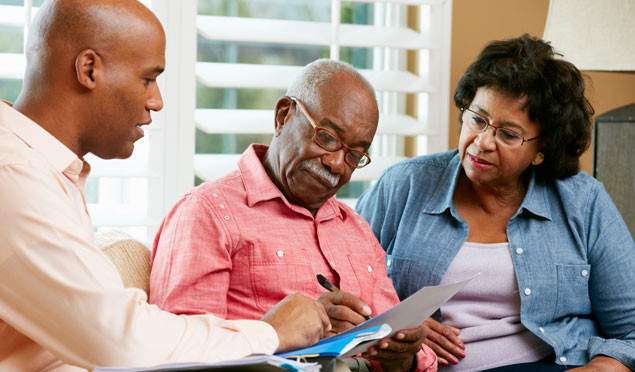Your Will, your way

Last updated on 13th December, 2017 at 10:19 am
Think of your Will as a gift to your loved ones. It’s a gift that protects their interests, so that they don’t spend months sorting out your estate. Here’s how to set up your Will.
Instead of thinking of a Will as something horrible that can be dealt with later, it is much better to think of it as a considerate gift to your loved ones. There are few things worse than having to deal with the daunting and complex task of winding up a deceased estate while mourning the loss of a loved one.
There is much more to drawing up a Will than filling in a template bought at your nearest stationery shop. Your Will is one of the most useful documents you might ever sign, and the only one to stipulate what you want to happen to your assets after death.
Without a Will the law of intestate succession determines which relatives stand to benefit – and in what proportion. At death an executor will be appointed by the Master of the High Court and your assets (after liabilities are paid) will be divided according to your Will or, if you don’t have a Will, by means of intestate succession. Unless you have a Will that indicates otherwise, the inheritance of your minor children will be placed under the control of the Guardian’s Fund of the Master of the High Court.
How to create a will
Ideally what you want to achieve with a Will is that your family’s needs are met according to your wishes. Here are the basic steps to drawing up your Will:
- Always start a Will with information about yourself – your full names and identity number. In the case of a joint Will, provide the details of both testators (both people drawing up the Will).
- Revoke any and all previous Wills you might have.
- Name the executor of your estate, in other words, the person who will handle the process after your death according to your Will. This can be a family member or trusted friend, or a testamentary adviser like an attorney, your financial adviser or a representative of your bank.
- Nominate the beneficiaries of your estate – who will inherit what.
- Name a guardian for minor children.
- Nominate a person to manage any properties you leave to minor children.
- Make sure your Will is dated when signed by yourself and two witnesses, preferably in black ink.
- You and the two witnesses must also sign at the right hand bottom of every page in each other’s presence.
- Keep an original signed copy yourself and another one at the offices of your executor and/or testamentary adviser.
- Inform family and friends where they can find copies of your Will.
You can write your own Will, but to avoid any confusion and possible impractical bequests, it is advisable to call in the services of qualified professionals to assist with drawing up a realistic and workable plan that will inform your spouse, parents, partner and other loved ones of your wishes in the case of your death.
By Helen Ueckermann
Want to learn more?
We send out regular emails packed with useful advice, ideas and tips on everything from saving and investing to budgeting and tax. If you're a Sanlam Reality member and not receiving these emails, update your contact details now.
Update Now







